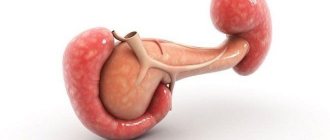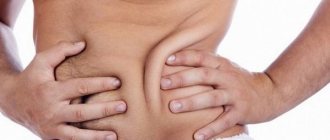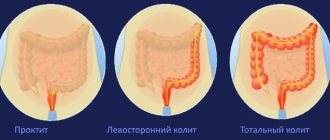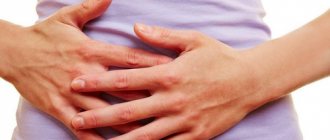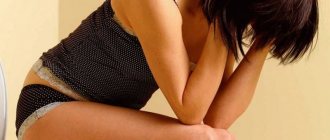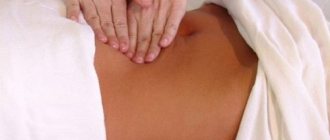Classification
According to the course of colitis, there are acute and chronic. In the first case, symptoms appear suddenly and increase rapidly. In the chronic version, the course of the disease is long, with periods of remissions and exacerbations. There are many different forms of colitis, including:
- nonspecific ulcerative;
- ischemic;
- infectious;
- drug;
- spastic;
- atypical, etc.
The inflammatory process can spread to the entire large intestine (pancolitis) or be localized in its section (typhlitis, sigmoiditis, transversitis, proctitis).
How to treat intestinal colitis at home?
Treatment of colitis is a complex process that requires the help of a specialist. Acute colitis is an indication for urgent hospitalization of the patient in a hospital. Significant loss of fluid with diarrhea, intoxication due to the activity of bacteria, anemia due to bleeding - all this can lead to emergency conditions that require intensive care in intensive care conditions. To prevent this, you need to consult a doctor when the first symptoms of the disease appear.
Chronic colitis is a pathology that is difficult to combat. Patients go to the clinic to monitor their condition and receive treatment that will provide temporary improvement. To maintain normal well-being in between hospitalizations, many doctors advise resorting to traditional medicine recipes and paying attention to diet and diet. This allows you to normalize the patient’s condition, while providing relief from drug treatment. To combat colitis at home, alternative medicine offers several simple but effective recipes.
Causes
The most common cause of colitis is infectious pathogens (bacteria, viruses, fungi) that enter the large intestine along with food. The following bacteria can trigger the inflammatory process:
- campylobacter;
- shigella;
- coli;
- Yersinia;
- salmonella, etc.
The bacterium Clostridium difficile is the cause of dangerous pseudomembranous colitis.
Sometimes the bacterium Clostridium difficile becomes the cause of colitis. Typically, this kind of inflammation develops after taking antibiotics or hospitalization. Another name for this disease is pseudomembranous colitis. This is due to the fact that clostridia form a fibrinous film on the surface of the mucosa.
Other causes of colon inflammation:
- autoimmune process (Crohn's disease, ulcerative colitis);
- impaired blood supply to the intestinal wall (ischemia);
- abnormalities of the gastrointestinal tract;
- allergic reactions;
- invasion of collagen and lymphocytes (microscopic colitis).
In children under 1 year of age, colitis is often caused by an allergy to cow's milk or soy milk. Sometimes the disease occurs during breastfeeding if the mother drinks cow's milk and passes its protein to the baby.
Types of colitis according to the nature of damage to the mucosa
In addition to the form of the disease and the topography of the pathology, the nature of the damage to the wall of the colon is distinguished. Inflammation can be catarrhal, atrophic, erosive, fibrinous, ulcerative.
Catarrhal type of disease
Catarrhal, or superficial, colitis occurs in the initial phase of the disease. Superficial colitis has an acute course and manifests itself after food or chemical poisoning or intestinal infection. It lasts for several days, affecting only the top layer of the mucous membrane. Then it is either cured or goes into another stage of the disease. Superficial intestinal colitis has the most favorable prognosis for recovery.
Erosive type of disease
The next stage of the disease is characterized by the formation of erosions on the mucous membrane - damage reaching small capillaries. The destruction of blood vessels ends in bleeding. A characteristic metallic taste is felt in the mouth.
Atrophic type of disease
At this stage of the disease, a long-term chronic process reaches the intestinal muscles. Muscles lose tone and can be either unnaturally compressed or completely relaxed. Peristalsis is impaired, constipation stretches and thins the intestinal walls. Constant contact with rotting feces leads to ulceration of the intestine, fistulas and wall perforations are possible.
Fibrinous type of disease
It is characterized by the presence of a dense film of fibrin threads on the surface of mucous defects. Classified in the literature as pseudomembranous colitis. It arises from the suppression of beneficial microflora by antibiotics or other medications and the activation of pathogenic strains of clostridia against this background.
Ulcerative type of disease
With ulcerative colitis in adults, numerous bleeding defects appear on the mucous membrane of the large intestine. Another name for the disease is nonspecific or undifferentiated colitis. Perennial undifferentiated colitis has a high risk of developing into cancer. In the ulcerative process, the colon and rectum are affected. In women, undifferentiated colitis is diagnosed 30% more often. It occurs chronically, with wave-like periods of exacerbation and remission. Patients suffer from cramping attacks in the abdomen, diarrhea with blood, and signs of general intoxication.
Symptoms
The inflammatory process in the intestinal mucosa leads to periodic spasms, which causes colic and pain. Typically, pain is localized in the lower abdomen, sometimes along the colon. Often the pain is accompanied by bloating (flatulence), and tenesmus may occur - a false urge to defecate.
Due to increased peristalsis (intestinal contractions), the liquid does not have time to be absorbed in the lumen of the intestinal tube, and watery stools occur. The pain may subside after defecation, but then returns the next time you use the toilet. Some people with colitis, on the other hand, experience constipation. This is especially common with congenital intestinal anomalies.
During an exacerbation of the process, some patients notice an admixture of mucus or blood in the stool. The last sign is a reason to seek emergency medical help, as it may indicate intestinal bleeding.
Depending on the cause of colitis, additional symptoms occur:
- fever;
- chills;
- dehydration (which includes weakness, dizziness and decreased urination);
- general malaise;
- fast fatiguability;
- weight loss;
- signs of hypovitaminosis (dry skin, brittle nails, cracks in the corners of the mouth, etc.).
Autoimmune bowel diseases, such as ulcerative colitis or Crohn's disease, are often accompanied by inflammation in the joints (arthritis), damage to the eyes (iritis), and skin and mouth ulcers (aphthous ulcers).
Complications due to colitis are a relatively rare occurrence. However, with severe disease and lack of adequate treatment, the following are possible:
- intestinal perforation followed by peritonitis;
- toxic megacolon - weakened intestinal motility and bloating;
- ulcers of the mucous membrane and bleeding from them.
Some experts also believe that colitis increases the risk of colorectal cancer. This is especially true for people with a long-term and severe form of the disease.
Chronic colitis
With insufficient or improper treatment and low body resistance, patients with acute colitis may develop chronic colitis.
- Most often, chronic colitis is provoked by the presence of dysentery bacteria, although other microorganisms (staphylococci, salmonella, proteus, balantidia, amoebas, pathogenic strains of Escherichia coli, Giardia, Trichomonas) can also cause chronic colitis.
- In some cases, helminthiasis may be the cause of chronic colitis.
- Chronic colitis can develop in the presence of foci of infection in nearby organs or organs that have an anatomical connection with the intestines (in the pancreas, in the gall bladder). In women, chronic colitis can be triggered by inflammatory processes in the pelvic organs. In the case of certain chronic infections (brucellosis, salmonellosis, etc.), colitis may be caused by the presence of a focus of the pathological process directly in the colon or under the influence of toxins from these infections.
- The cause of nutritional colitis may be:
- abuse of spicy foods or alcoholic drinks;
- long monotonous diet;
- systematic consumption of large amounts of indigestible food.
- Of considerable importance are functional disorders of the digestive glands that arise due to disrupted diet. Colitis develops when consuming food that is poor in proteins and vitamins, as well as physiological stimulants of the secretory and motor functions of the intestine.
- Colitis can also be caused by ingestion of food masses that are not sufficiently processed for intestinal digestion (due to diseases of the stomach, pancreas, small intestine, liver, bile ducts, or as a result of chewing disorders).
- Intoxication with alkalis, heavy metals, and some medications (salicylates, digitalis, diphenhydramine, etc.) can also cause such an unpleasant disease as chronic colitis.
- In inflammatory processes of other organs of the digestive system (pancreatitis, gastritis, cholecystitis, hepatitis, duodenitis, etc.), secondary colitis can develop. In such situations, viscero-visceral reflexes play a significant role.
- Patients with cirrhosis of the liver and diseases of the cardiovascular system may be susceptible to this disease.
- The risk group also includes patients exposed to ionizing radiation.
- The presence of abnormalities in the structure and position of the intestine (megacolon, megasigma, dolichosigma, coloptosis, diverticulosis), adhesions in the peritoneum, can also provoke the development of chronic colitis.
Diagnostics
Colitis is usually diagnosed and treated by a gastroenterologist. If an infectious etiology of the disease is suspected, contact an infectious disease specialist.
At the initial appointment, the doctor will ask about the nature and duration of the symptoms, their progression, how often they occur and then worsen. It is important to report concomitant chronic diseases, family history, and bad habits.
After a general examination, including palpation of the abdomen, additional studies will be needed:
- clinical and biochemical blood test;
- stool examination (coprogram);
- Ultrasound of the abdominal organs;
- X-ray examination of the large intestine;
- fibrocolonoscopy.
When visiting a doctor, you need to talk in detail about the existing symptoms, their duration, and provoking factors.
Colonoscopy is needed not only to identify and confirm the inflammatory process of the intestinal mucosa. It helps to visualize malignant and benign formations, erosions and ulcers, microdamage to the mucosa.
Symptoms of colitis and diagnostic techniques
Symptoms of colitis can be very different, as they depend on its type. Here are the main types identified taking into account its course:
- spicy;
- chronic.
According to etiology, colitis can be classified as follows:
- ulcerative;
- spastic;
- pseudomembranous;
- enterocolitis;
- ischemic.
Acute colitis is characterized by the appearance of severe swelling during an increase in the intestinal mucosa. A large amount of mucus or pus appears in the distal section, and the walls turn red. Minor hemorrhages are possible.
Over the course of several weeks, those suffering from acute colitis may experience the following symptoms:
- gagging and vomiting;
- general deterioration of health;
- low productivity;
- blood and mucus in the stool;
- abdominal pain;
- bloating;
- diarrhea.
After the form of the disease becomes chronic, inflammation in the area of the ligamentous-muscular system is added to the inflammation of the mucous membrane. The intestines in the affected area decrease in size.
Chronic colitis has several characteristic symptoms:
- extremely unpleasant odor of feces;
- bowel problems (diarrhea or constipation);
- severe pain in the abdominal area;
- flatulence.
Ulcerative colitis is most often hereditary. It can be identified by several accompanying phenomena:
- severe pain in the left abdominal area;
- constipation;
- slight increase in body temperature;
- rectal bleeding;
- rectal purulent discharge;
- weight loss;
- anemia.
In advanced cases, symptoms can be much more serious. For example, intestinal obstruction and peritonitis cannot be ruled out. If ulcerative colitis is left untreated for several years, the risk of bowel cancer increases.
Spastic colitis can hardly be called a serious disease. It occurs after overwork, stress and other physical exertion. Spastic colitis has four characteristic symptoms:
- diarrhea or constipation;
- gases;
- bloating;
- pain in the abdomen.
Pseudomembranous colitis occurs due to dysbacteriosis . Its symptoms depend on the form. A mild form of pseudomembranous colitis has only one symptom - diarrhea while taking antibiotics. But moderate and severe have several symptoms:
- abdominal pain that gets worse during bowel movements;
- constant diarrhea;
- mucus and blood in stool;
- elevated temperature;
- malaise;
- false urge to defecate;
- gagging and vomiting;
- hypotension;
- tachycardia.
Enterocolitis accompanies acute gastritis. The list shows its symptoms:
- plaque formation on the tongue;
- headache;
- decreased productivity;
- diarrhea;
- blood and mucus in the stool;
- abdominal pain accompanied by rumbling;
- nausea;
- bloating.
Ischemic colitis in necrotic form is characterized by pain in the left abdominal region. In the episodic form, in addition to pain, diarrhea, bloating, vomiting and weight loss are observed.
If signs of the disease are detected, you should visit a gastroenterologist or caloproctologist. After the examination, you need to submit your stool for analysis so that a specialist can assess the functioning of your intestines. Colitis can also be detected using these studies:
- colonoscopy;
- ultrasonography;
- irrigoscopy;
- sigmoidoscopy.
Treatment
Treatment for colitis primarily depends on the cause. Because inflammation of the large intestine is often associated with diarrhea (diarrhea), the first step is rehydration - orally (by mouth) or intravenously in a hospital setting.
For chronic colitis with constipation, laxatives are recommended. Preference is given to drugs that soften stool: almond, vaseline or castor oils.
The following groups of drugs are also used to treat intestinal inflammation:
- gastroprotectors (Rebagit);
- antidiarrheal (Loperamide);
- probiotics (Linex, Bifiform);
- antispasmodics (Meteospasmil);
- antibiotics (if bacterial etiology of colitis is established);
- antiplatelet agents (Pentoxifylline) for ischemic damage.
Surgical treatment is indicated for complications. Depending on the problem, endoscopic thromboembolectomy from the branches of the abdominal aorta, resection of a section of intestine, etc. is performed.
An appropriate diet plays an important role in the treatment of colitis. It is recommended to eat meals 4-5 times a day. During an exacerbation, preference is given to soft foods in boiled, steamed or baked form. It is better to serve it warm; cold dishes can increase intestinal motility.
For colitis, dishes should be served warm, preferably boiled.
The menu is based on dishes made from vegetables without coarse fiber (zucchini, pumpkin, carrots, potatoes), porridge (except wheat and pearl barley), lean boiled meat and fish (pike perch, hake, cod). Eggs, dried bread, biscuits are allowed.
Fresh juices diluted with water (1:1) are recommended as a source of vitamins. They begin to take them gradually, first 50 ml, gradually increasing to 150 ml. Juices from cranberries, raspberries, and pomegranates have a bactericidal effect.
Limit foods high in fiber, including fresh fruits and vegetables. Subsequently, the diet is gradually expanded. But even during the period of remission, exclude the following foods:
- alcohol;
- carbonated drinks;
- dairy products (if lactose intolerant);
- dried beans, peas, legumes, nuts, dried fruits;
- spices;
- products containing sorbitol (chewing gum and sugar-free candies);
- fatty and fried meat or fish.
Treatment of colitis
Treatment of colitis begins with eliminating the causes of the disease: a diet is prescribed, the infection is cured, blood circulation is improved, the list of medications is revised if constant medication is necessary. Before treating colitis in women, they find out if she is pregnant or if she has gynecological diseases.
Therapeutic diet for colitis
An integral part of the treatment of intestinal colitis in adults is a specially designed nutritional system. The purpose of the diet is to reduce the load on the gastrointestinal tract, accelerate the healing of the mucous membrane, and normalize peristalsis. On the first day of the acute process, therapeutic fasting with plenty of clean water is prescribed. After acute inflammation is relieved, you need to take food in small portions up to 6 times a day. The food is steamed, stewed in water, baked under foil, ground and served pleasantly warm. The diet consists of boiled porridges in water, pureed soups, and steamed products made from lean minced meat. Fresh vegetables and fruits, mushrooms, nuts, and seeds are exceptions to the diet. Avoid spicy, sour, fatty, sweet, rich and gas-forming foods. As you recover, the list of products expands in agreement with your doctor.
Antibacterial agents for colitis
Colitis of an infectious nature is treated with antibacterial medications. The doctor treats intestinal inflammation with drugs:
- group of nitrofurans – Enterofuril, Furazolidone;
- group of sulfonamides – Phthalazol;
- rifampicin group – Alpha Normix;
- group of fluoroquinolones – Tsifran;
- group of polymyxins – Polymyxin-v sulfate, Polymyxin-m sulfate;
- broad spectrum antibiotics - Tetracycline, Levomycetin, Oletetrin, Streptomycin, Neomycin, Monomycin.
Before using antibiotics, an analysis of the sensitivity of the flora to drugs is carried out to prescribe the most effective remedy. Take in the dosage indicated by the prescription, strictly observing the time intervals.
Anthelmintics for colitis
If colitis is caused by parasitic worms, anthelmintic drugs are prescribed. Methods and means of treatment depend on the type of parasite.
The following can cure helminthiasis in colitis:
- Nemozol;
- Vermox;
- Albendazole;
- Dekaris;
- Praziquantel;
- Pirantel.
Tablets and suspensions for worms are highly toxic. Treat helminthiasis carefully, following the dosage and doctor's instructions.
Antispasmodics for colitis
Antispasmodic drugs are intended to treat colitis with painful spastic pain. They will relieve pain by relaxing tight muscles.
Spasms are treated with medications:
- No-Shpa;
- Spasmol;
- Duspatalin;
- Dicetel;
- Buscopan;
- Papaverine;
- Papazol.
In addition to pharmaceutical drugs, folk methods will help relieve pain from illness. Decoctions of mint, chamomile, oregano, and calamus will relieve pain, relieve spasms, and soothe irritated mucous membranes. Brew a teaspoon of dry herb with 200 ml of boiling water, leave for 30 minutes. Take 50 ml between meals 4 times a day. The course of treatment is from 2 weeks to a month.
Diarrhea remedies
Diarrhea threatens with dehydration and impaired water-electrolyte metabolism. You can stop diarrhea with Smecta, Enterosgel, Imodium. To replenish moisture, drink more water, weak tea, compote, or rosehip decoction.
Herbal decoctions will be effective for colitis with diarrhea:
- infructescences of gray alder, rhizomes of snake knotweed;
- oak bark, cinquefoil rhizome.
Take a teaspoon of dry ingredients mixed in equal parts, pour in 300 ml of boiling water and simmer for 15 minutes in a water bath. Cool, filter, take 2 tablespoons 20 minutes before meals.
Remedies for bloating and gas formation
Excess intestinal gases cause great inconvenience to those suffering from colitis. The solution to the problem is simple - you need to prepare a decoction according to the recipe:
- chamomile flowers, oregano herb, caraway fruits;
- calendula flowers, chamomile flowers, peppermint leaves, valerian root.
Brew a teaspoon of the mixture in equal parts of dry plants with 300 ml of boiling water, leave for 30 minutes. Take 100 ml of decoction an hour after meals three times a day.
Prognosis and prevention
The prognosis for infectious colitis is favorable. Prescribing antibacterial drugs quickly eliminates symptoms and returns the patient to a full life.
In case of an autoimmune process (nonspecific ulcerative colitis, UC), lifelong treatment courses are required. Constant diet and monitoring are also necessary to prevent complications.
Prevention of any colitis is a good healthy diet, limiting stress, following the rules of hygiene and food processing. Any antibiotics should be taken only if indicated and in the dosage prescribed by the doctor - this will avoid disruption of the intestinal microbiota and associated symptoms. Measures to reduce blood cholesterol, quit smoking and control blood pressure will help in the prevention of ischemic damage to the gastrointestinal tract.

